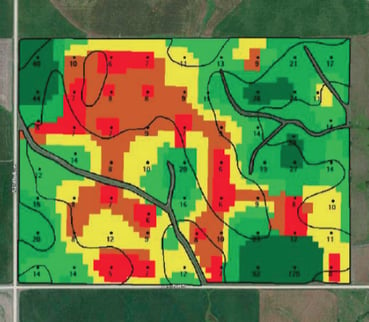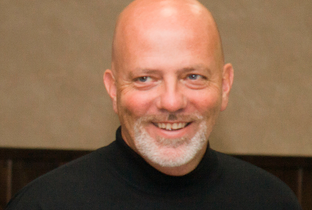Private colleges market their low faculty-student ratios to compete with the draw of big universities and the message is it's a place where we know your name. Insurance companies compete by selling the value of an agent when you have a claim vs. a phone number to call – the message is you are more than a number. These savvy marketers know that "me matters" – at some level most of us value being treated as the individuals we are. Being treated as though we are all the same as our peers – whether by age, gender, race, economic situation or other demographic insults our sense of being unique in the world.
Pretending that what is different is all the same may be how things were, but it is not how they will be in the future.
Over 30 years ago when my career started it was common that we would drive into a field, randomly pull 20 cores of soil from within the field, mix the cores in a bucket, pour a one pound sample into a soil sample bag, send it to the lab and then "pretend" the lab results were representative of the field. We would then uniformly apply a blend of nutrients for each field that best matched those soil test results, pretending that one rate of multiple nutrients was right for that field and the crop to be grown.
Sampling and applying different blends for each field was an improvement compared to not sampling and applying the same blend to all fields.

While we now have the ability to easily measure variability within our fields and to manage each part of our fields uniquely, the reality is most growers don't. Reality is, even in today, the majority of fields are still treated and managed as though they are uniform. Pretending that dramatically different geographies are the same, is still common with our agronomic recommendation system. State-wide recommendations may provide an average starting place but too often they are also the ending place.
I believe that will soon change. I believe precision ag will become agriculture's fruit fly! Cancer researchers have discovered that at a molecular level, fruit flies share many of the common genes that are found in human tumors. A common cancer tumor with 200 mutated genes might contain 180 genes that can be reproduced in fruit flies. Researchers can order up strains with each unique mutation. Eventually they whittle the number of genes down to about ten that seem to matter. Those ten genes produce a cancerous growth in the fly that most closely resembles the one in the human being. They are basically able to construct a fruit fly that is personalized to each person's cancer. Instead of treating cancer with a one-sized-fits-all chemotherapy cocktail, researchers are able to develop a very personal treatment that is best for each individual's cancer.
Precision ag's history has been about applying existing knowledge variably within diverse landscapes. The future will be about using spatial data to create new complex agronomic knowledge that can be used in the most site-specific applications possible. This will be a fundamental change – same as using a fruit fly to uniquely treat cancer!



